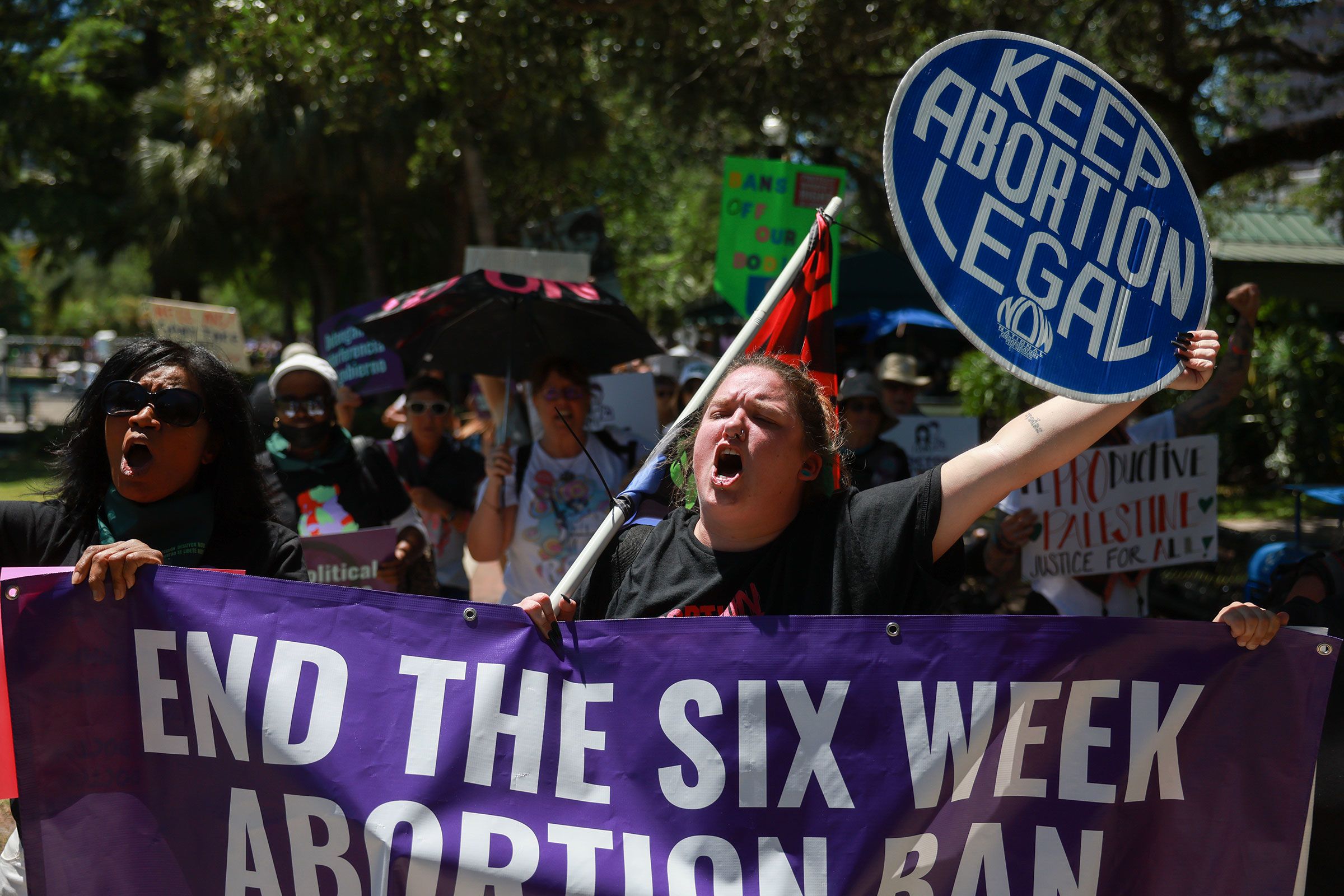The fallout from the termination of Roe v. Wade continues to reverberate across courts, legislatures, presidential campaigns, and the lives of everyday Americans, two years after the landmark decision was overturned.
The Courts
The US Supreme Court is set to hear its second abortion-rights case in as many months. The case will examine whether hospitals are federally obligated to provide emergency abortions to women facing medical emergencies.
Legislatures and State Governments
Florida, a historically significant electoral state, will implement a restrictive six-week abortion law on May 1. This has sparked hope among Democrats to reignite the state as a battleground over the issue. The new law in Florida offers limited exemptions for cases of rape, incest, and to safeguard the mother’s life.
Meanwhile, in Arizona, a restrictive law from 1864 is set to be reinstated as early as June 8, marking its first enforcement in anyone’s lifetime. The state House has quashed an attempt to repeal the 160-year-old abortion ban, which only includes an exemption to protect the life of the mother. However, the state Senate has left the door open for further discussion.
The Election
President Joe Biden and Vice President Kamala Harris have been actively campaigning for abortion rights. Biden recently visited Florida, while Harris spoke to CNN’s Edward-Isaac Dovere in Arizona, expressing her intention to challenge former President Donald Trump for his role in appointing one-third of the Supreme Court that overturned Roe v. Wade. Despite their efforts, Biden and Harris currently lack the necessary votes in both the House and Senate to protect abortion rights in federal law.
New Reality
The cases currently before the Supreme Court could significantly shape the new reality for pregnant American women. The court will hear arguments regarding a federal law from 1986 that mandates hospitals receiving federal funding to stabilize the health of emergency room patients.
The Biden administration has sued Idaho over its strict abortion ban, which includes a narrow exception for when the mother’s life is at risk but does not permit abortion in non-life-threatening medical emergencies. The Idaho case, which has proceeded somewhat under the radar, has not attracted as much attention as another case where the Supreme Court is considering the FDA’s approval of a drug used in medical abortions for decades.
Women Seeking Care Outside Their States
There is a growing number of stories of pregnant women in distress being denied emergency care in states with outright abortion bans or restrictive laws. Some women, like Jen Adkins, have had to travel out of state to receive the care they need. Doctors are now recommending “life flight insurance” for pregnant women in states with tight abortion restrictions.
Abortion Rights Strategy
Democrats are hoping to leverage the anger and fear about the loss of reproductive rights in Florida, Arizona, and other states to their advantage in the upcoming November elections. The Biden campaign is strategically focusing on abortion rights and arguing that exemptions to restrictive abortion laws are not working in states that have them.
Harris Settles into New Role
Vice President Harris is taking on the role of a political prosecutor during the coming election. She aims to present the case that Trump, who appointed justices to overturn Roe, will curtail freedoms if he returns to the White House.
Women facing the prospect of needing to seek a court order for an emergency abortion or being forced out of state are unlikely to agree with Trump’s assertion that the US Supreme Court’s Dobbs decision that overturned Roe v. Wade is “working the way it is supposed to.”

